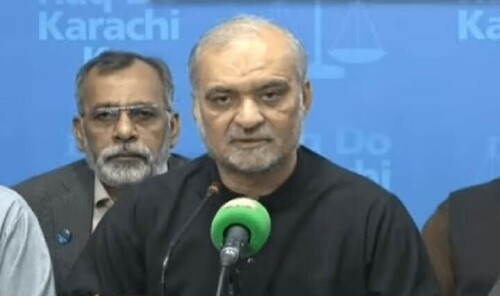Contrary to the notion that in Pakistan things began to take an unhealthy turn in the late 1970s, the fact is that the Pakistani state knew what it was doing from the get-go. Let’s rephrase the last part: from the time it began to draw its ideological contours. Take, for instance, the topic of banning books. It was always there; and whenever it was flouted, the state put its foot down… with a resounding thud.
On April 8, 1965 the newspapers ran the story that the West Pakistan Education Department had banned school books which were not approved by the department. In those days the issue of having a uniform curriculum in schools was being discussed with the same intensity as it is now debated by some of our politicians and educationists. The same day when the West Pakistan Education Department had made a point about unapproved books, it was learnt that it had also decided to introduce a uniform syllabus and courses of study effective from the academic year 1965-66. Urdu would be included in all classes (from I to VIII), it added.
But that was not the education-related news that caused a bit of a stir in academic circles. Here is something that might take many readers by surprise. The then government ordered the closure of all English-medium kindergarten schools in West Pakistan, starting, again, from the next academic year, July 1965. Here are the reasons provided by the government for closing down kindergarten schools: “Despite the fact that they’re very expensive, beyond the means of an ordinary man, they’re poorly staffed, lack adequate facilities and haphazardly managed.” My word, this is hardly irrelevant in our times. Today, Pakistan requires a quality education system with a uniform syllabus that cuts across economic boundaries. Haven’t we moved an inch in 50 years?
One thing is clear as day. In the ‘60s, the education department did give a hoot about what it was paid for, which is perhaps why it cared for the people and their jobs that fell under its purview.
On April 5, the University of Karachi received a notification according to which the revised pay scales of the university’s lecturers were approved by the West Pakistan government. That must be music to the teachers’ ears.
So it is no wonder that the standard of education in the University of Karachi at the time was worthy of feeling proud of.
On April 10, Vice Chancellor Dr I. H. Quraishi inaugurated a seminar on English poet T. S. Eliot. Speaking on his life and work, the VC said Eliot was a supreme modern poet whose sensibility and expression appeared to be revolutionary for his own contemporaries. Another eminent scholar that was present on the occasion was former vice chancellor of Dhaka University Dr Mahmood Hasan. Presiding over the seminar, he spoke on a different but interesting aspect of the poet’s work. Dr Hasan drew resemblance between Eliot’s ideas and values to Allama Iqbal’s and his thoughts on Islam. Come to think of it, it would be enlightening to get a copy of his speech, for Eliot was certainly not the kind of writer whose books could be banned anywhere in the world.
Published in Dawn, April 6th, 2015
On a mobile phone? Get the Dawn Mobile App: Apple Store | Google Play













































Dear visitor, the comments section is undergoing an overhaul and will return soon.